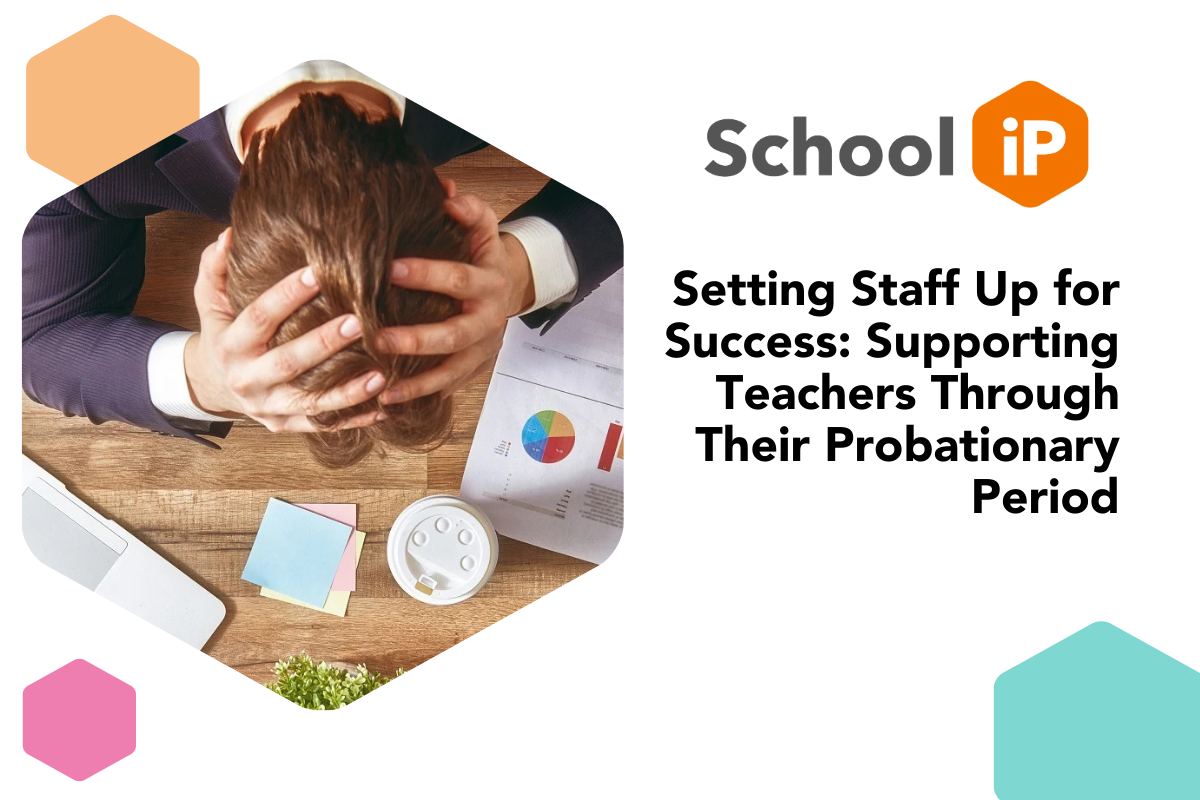Setting Staff Up for Success: Supporting Teachers Through Their Probationary Period


The probation period is a crucial time for new teachers and support staff, setting the foundation for their success and long-term impact in a school. It is an opportunity to establish clear expectations, provide structured support, and ensure new staff members are equipped with the right tools to thrive. However, many schools face challenges in delivering a consistent and effective probationary process, which can impact teacher confidence, performance, and ultimately, retention.
By implementing structured induction programmes, regular feedback mechanisms, and professional development opportunities, schools can support new staff effectively. In this insight, we explore common challenges associated with the probation period, strategies for navigating them, and how SchooliP can help streamline this journey.
1. Lack of Clear Expectations
Without clearly defined roles, responsibilities, and success criteria, new staff may struggle to understand what is expected of them, leading to uncertainty and inconsistent performance.
2. Inconsistent Support & Mentoring
While many schools offer mentoring, the level of support can vary significantly, leaving some probationary staff without the guidance they need to improve and adapt effectively.
3. Limited Feedback & Progress Tracking
New teachers and support staff need regular feedback to understand their strengths and areas for improvement. Without structured observations and assessments, progress can be difficult to measure.
4. Workload & Wellbeing Concerns
The probationary period can be overwhelming, with new staff juggling lesson planning, behaviour management, and professional expectations, often without adequate support.
5. Retention Risks
Poorly managed probation periods can result in new teachers feeling unsupported and leaving the profession early, contributing to staffing shortages and recruitment challenges.
To ensure a smooth and effective probation process, schools should consider the following strategies:
1. Structured Induction Programmes
Develop a clear roadmap for the probation period, outlining key milestones and objectives.
Provide detailed handbooks and guidelines to ensure consistency in expectations.
Schedule orientation sessions to introduce new staff to school policies, culture, and expectations.
2. Regular Check-ins & Mentoring
Assign an experienced mentor or line manager to each probationary staff member.
Hold regular one-to-one meetings to discuss progress, challenges, and areas for development.
Encourage peer observations to help new staff learn best practices from experienced colleagues.
3. Consistent, Actionable Feedback
Implement structured observation cycles to provide formal and informal feedback.
Ensure feedback is constructive, focusing on strengths and specific areas for growth.
Use progress reviews at key points during probation to assess development and provide necessary interventions.
4. Workload Management & Wellbeing Focus
Monitor workload to ensure new staff are not overwhelmed.
Encourage a balanced approach to lesson planning, assessment, and extra responsibilities.
Promote a culture of wellbeing by providing access to support services, peer networks, and CPD on resilience and stress management.
5. Early Identification of Support Needs
Use performance data to identify early indicators of struggle.
Provide targeted interventions, such as additional training or coaching, to help staff meet expectations.
Ensure open communication so probationary staff feel comfortable seeking help when needed.
While these strategies provide a solid foundation for an effective probation process, managing them manually can be time-consuming. SchooliP offers a streamlined, digital solution to ensure probationary staff receive the structured support they need.
Streamlined probation tracking – Set clear milestones, monitor progress, and document key achievements throughout the probation period.
Centralised feedback & observation records – Maintain all lesson observations, performance reviews, and professional development records in one easily accessible platform.
Mentoring & CPD integration – Assign mentors, schedule check-ins, and link professional development opportunities to individual staff needs.
Retention-focused approach – Identify potential challenges early, provide timely interventions, and support new staff in becoming confident, capable educators.
By integrating SchooliP into their probation management process, schools can ensure a more structured, supportive, and effective approach, leading to higher retention rates, improved staff performance, and better outcomes for students.